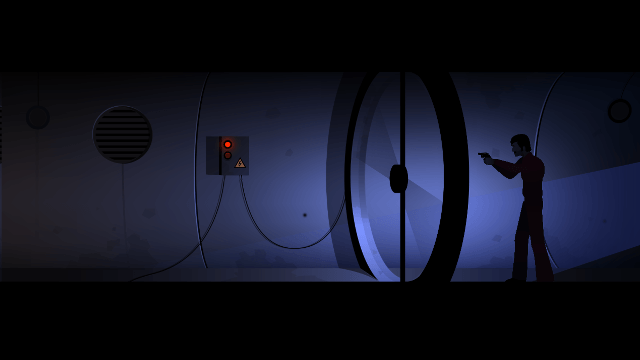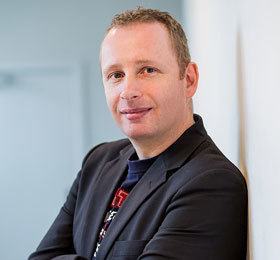In recent years, indie games have seen a revival of sorts, with independent developers from America and Europe pumping out new games every single day.
But since 2011, one indie games studio in Denmark has been making games go mobile all over the world, and has recently crossed over to the PC sphere with the help of their highly-acclaimed point-and-click adventure game, The Silent Age.
It wasn’t all success though, with their first game, Neon Zone, acting as more of a learning experience before tackling the intense graphics and mobile market of the game the studio was created for in the first place.
Besides the climb to the top, I spoke with House on Fire CEO, Uni Dahl, about the PC platform, the indie scene in Denmark, and the ultimate endgame of the fledgling games studio.

The New Age
How has House on Fire’s journey to success been like?
We started out as a group of – I’d like to think naive – developers who wanted to do what we love doing. We didn’t get paid for at least the first year, and that was hard on our personal finances. Luckily, we got investment to finish The Silent Age from Capnova A/S, and that, along with the massive support from people donating to the development, has brought us to where we are now.
Was PC a goal when The Silent Age was first envisioned?
We originally didn’t plan the PC version of The Silent Age, but we saw that the game worked great on PC and felt it was the right move.
What made the release of The Silent Age possible on PC?
We always had the game running on PC. We used Unity (a cross-platform game engine), and it was so much easier to just press “play” in the engine to test out a level, rather than building and uploading to a specific device. It wasn’t until we were quite far into the development of Episode One that we started building for mobile devices on a regular basis. PC was working very well all along, and all we had to do was tweak the interface to better suit mice, and even controllers.
How did the process in getting the game out differ between the mobile and the PC release?
From a marketing perspective, we didn’t have any experience with Steam, so we decided to release with a publisher, Meridian4, who took care of the promotion of the game. Teaming up with Meridian4 let us focus on making games, which is what we’re good at anyway. But I must admit, to my surprise – and maybe naivety – 40 other games launched on Steam the same day as The Silent Age, so it was already at the flooding numbers we’re used to seeing on the mobile market.

The Personal Computer
Will PC now become a regular platform for House on Fire?
Whether we want to become a regular PC developer now is difficult to say. I think it depends on where the game is suitable, but other factors, such as the number of games launched every day, will also influence our choices.
How do you feel about the influx of new games every day?
The platform will always dictate what type of games suit it. The effect of 40 – or hundreds of daily titles for that matter – is that prices will inevitably drop to 0 because developers will need to fight for the users, and it can’t get any cheaper than 0.
Is that a good or a bad thing?
Basically, I think Steam is heading in a similar direction as the mobile market, which is probably great for Steam, but a little less so for certain types of games, and in the end, I think consumers actually lose out.
What can make it better for indies to stand out?
Indies need to be very talented at presenting themselves and their story. PR is essential to any game launch, and this is where indies have a small advantage, in that their story is like the little David up against the odds. They can show that there are people behind the game, and those individuals matter – they’re often irreplaceable in some sense.

Missing in Action
There’s one game you announced a while back but haven’t released; what happened to it?
Around the same time we released Neon Zone in 2011, we received a grant from Nordic Game to develop a prototype which we called SNOT!. However, we felt that we should focus on The Silent Age, so SNOT! was put on hold for the time being. But I’m happy to say that we’re now working on it again.

Homeland
How important is Denmark as the base of House on Fire?
I don’t think Denmark is that important to us as a base, but our network is here. We’re known here (somewhat at least) so it’s a bit of a hassle to relocate, but there’s nothing critical holding us back.
How is the Danish video gaming industry different from those of other countries?
It’s hard for me to compare to other countries, but there’s a tight community in Copenhagen at least, and there’s always someone willing to help if you ask.
Financially, there are not many subsidies flowing into the game industry, and investors are few and far between, but the welfare system we have makes it quite safe to start a company; I’m never worried that my family will starve.
How much support do independent games studios have?
We have a few institutions such as Interactive Denmark, which is doing an amazing job at helping startups off the ground with workshops, networking etc. so Denmark might actually be a great place to start a company. The workforce is available and highly educated.
What would make it a supportive hub for independent developers?
I think what’s missing is the money – investors.

CEO
How has your role at the studio changed since it was first founded?
I think the biggest change is that I no longer have time to make games myself. Running a company is a full time job, and I’m still learning. My biggest focus? How to optimize my time.
How different is running a company from developing games?
For me, developing games is a technical challenge, while running a company is a coaching, social, networking, business challenge. I’m sure anyone running a startup can add about 10 more areas to that list.
Lastly, what’s next for House on Fire?
I think, whatever we do, we want to make unique experiences – games we can be proud of ourselves.
Follow the blaze of House of Fire on Twitter @houseonfiredk, their official website, houseonfire.dk, and on Uni’s Twitter @u9i.
The Silent Age is available now on Steam, iOS, Android, Windows Phone, Windows 10, and Kindle Fire.
The interview has been edited for length and clarity.







Published: Jul 20, 2015 05:47 pm